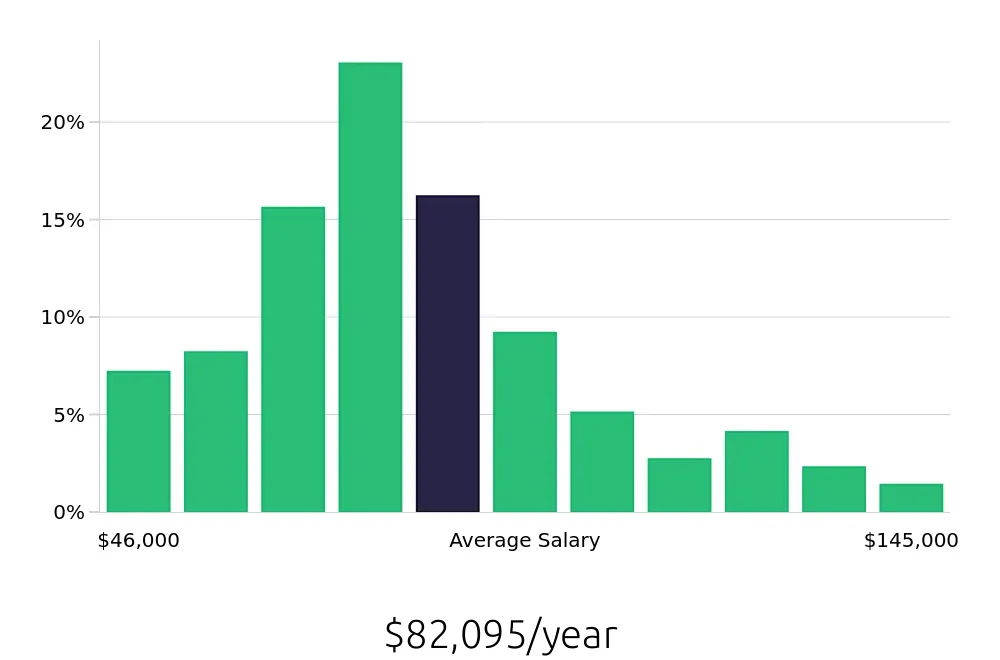What does a Energy Analyst do?
An Energy Analyst plays a key role in the energy sector. They gather and analyze data to help companies make smart decisions. This may include studying energy usage, trends, and costs. They use this information to recommend ways to save energy and reduce costs. Energy Analysts often work with engineers and managers to improve energy efficiency.
Typical duties of an Energy Analyst include conducting energy audits, tracking energy consumption, and identifying savings opportunities. They also prepare detailed reports and presentations. These reports help management understand energy usage and potential areas for improvement. Energy Analysts might work in various industries, including utilities, manufacturing, and technology. They help businesses reduce their environmental impact and lower operational costs. This position requires strong analytical skills and attention to detail.
How to become a Energy Analyst?
Becoming an Energy Analyst can lead to a rewarding career in the growing field of energy. This path requires a mix of education, skills, and experience. Follow these steps to achieve this goal.
First, obtain a relevant degree. A bachelor's degree in fields like environmental science, engineering, or economics is ideal. This education provides the foundation needed to understand energy systems and analysis.
- Earn a Degree: Obtain a bachelor’s degree in environmental science, engineering, or economics.
- Gain Experience: Look for internships or entry-level positions in energy companies. This experience helps build practical skills.
- Develop Skills: Learn data analysis and software such as Excel, R, or Python. These tools are essential for energy analysis.
- Network: Connect with professionals in the energy sector. Attend industry events, join relevant groups, and use LinkedIn to expand your network.
- Stay Updated: Keep up with the latest trends and technologies in the energy industry. Continuous learning helps stay competitive.
How long does it take to become a Energy Analyst?
Pursuing a career as an Energy Analyst involves a mix of education, training, and experience. Most roles require at least a bachelor’s degree in fields like engineering, environmental science, or economics. This degree typically takes four years to complete. Completing this foundational education lays the groundwork for specialized training in energy systems, data analysis, and sustainability practices.
After earning a bachelor's degree, gaining practical experience becomes crucial. This can involve internships, cooperative education programs, or entry-level positions in the energy sector. This hands-on experience helps in understanding real-world applications of the theoretical knowledge gained during college. Many professionals find that it takes about two to three years to build enough experience to move into mid-level positions. Continuous learning and certification in specialized areas can further enhance career prospects and open doors to senior roles.
Energy Analyst Job Description Sample
We are seeking a dedicated Energy Analyst to join our team. The Energy Analyst will be responsible for analyzing energy consumption patterns, developing energy management strategies, and ensuring compliance with energy regulations. The ideal candidate will have a strong analytical background and a passion for sustainable energy solutions.
Responsibilities:
- Analyze energy consumption data to identify trends and patterns.
- Develop and implement energy management strategies to improve efficiency and reduce costs.
- Conduct energy audits and provide recommendations for energy conservation.
- Prepare reports and presentations on energy usage and sustainability initiatives.
- Monitor and ensure compliance with energy regulations and standards.
Qualifications
- Bachelor's degree in Engineering, Environmental Science, Business, or a related field.
- 2-5 years of experience in energy analysis, sustainability, or a related field.
- Strong analytical skills and proficiency in data analysis tools.
- Knowledge of energy regulations, standards, and best practices.
- Excellent communication and presentation skills.
Is becoming a Energy Analyst a good career path?
An Energy Analyst plays a crucial role in the energy industry. They examine data to improve energy efficiency and sustainability. This career combines analytical skills with a passion for environmental issues. Professionals in this field often work with governments, companies, or research organizations. They analyze energy consumption and suggest ways to reduce costs and improve efficiency.
Being an Energy Analyst offers many benefits. These include working on important issues that affect the environment. It also involves using data to solve real-world problems. Analysts often enjoy a good work-life balance. They can work in various settings, from offices to on-site at energy facilities. However, the job can have its challenges. Analysts must stay updated on new technologies and regulations. This requires ongoing education and training. The job can also involve working with complex data, which requires strong analytical skills.
To help you decide if this career is right for you, here are some pros and cons:
- Pros:
- Contribute to environmental protection.
- Work on important and impactful projects.
- Good work-life balance in many positions.
- Opportunities to work in different sectors.
- Cons:
- Need to keep up with new technologies and regulations.
- Requires strong analytical and data interpretation skills.
- May involve long hours during critical projects.
What is the job outlook for a Energy Analyst?
The job outlook for Energy Analysts is strong and promising for job seekers in this field. According to the Bureau of Labor Statistics (BLS), the average number of job positions available each year is 107,000. This steady demand indicates a growing need for professionals skilled in analyzing energy consumption and efficiency.
Job openings for Energy Analysts are expected to increase by 4.1% from 2022 to 2032. This percentage growth suggests a positive trend, offering numerous opportunities for those entering the field. With the focus on sustainable energy and renewable resources, Energy Analysts are vital in helping organizations meet environmental goals and improve operational efficiency.
Energy Analysts also enjoy competitive compensation. The BLS reports an average national annual salary of $89,130. Hourly compensation averages $42.85. These figures highlight the value placed on expertise in energy management and analysis, making it an attractive career path for those seeking both stability and growth.
Currently 29 Energy Analyst job openings, nationwide.
Continue to Salaries for Energy Analyst


